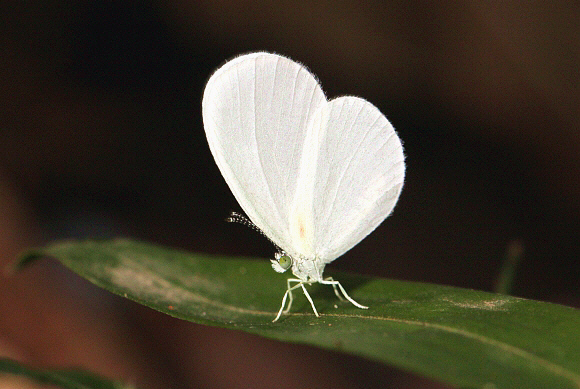
Introduction
The subfamily Coliadinae is worldwide in distribution, and includes 70 species in the neotropical region. Among them are the familiar Phoebis Sulphurs and Eurema Grass Yellows of the lowlands, and the Colias Clouded Yellows of the high altitude paramo and puna grasslands.
Most Coliadinae species are migratory in nature, and highly conspicuous – Phoebis and Eurema for example are often seen flying along riverbanks in “strings” of a dozen or more while migrating, and males of both genera commonly swarm in groups of 50 or more when mud-puddling at damp sand.
It may come as a surprise therefore to find that the tiny and elusive Snowflake, a denizen of the dark rainforests, is also a member of the same subfamily. There are in fact two “snowflake” species – elvina, which has dark wing borders and looks like a miniature Eurema albula; and the illustrated species brephos, which is by far the commoner and most widespread of the two species.
Leucidia brephos is distributed from Panama to Bolivia.
Habitats
This species breeds in lowland rainforest at altitudes between sea level and about 800m.
Lifecycle
To be completed.
Adult behaviour
Snowflakes are invariably encountered singly, usually when seen in flight at light gaps in the forest, where trees have fallen and sunlight penetrates to ground level. These tiny butterflies have a very slow and very persistent fluttering flight, flying for long periods but apparently going nowhere ! It is in fact possible to watch one of these delightful butterflies drifting and wafting about, but without travelling more than a few metres, for several minutes before it eventually settles. When the butterfly does settle however it tends to stay put for long periods – these aspects of it’s behaviour being very reminiscent of the Leptidea Wood Whites of European forests, although the latter are of course entirely unrelated, being members of the Dismorphiinae.
